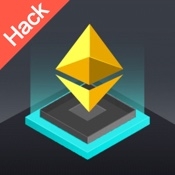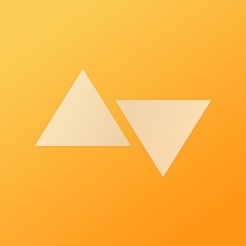Crypto and Gaming: More Than Just Play
Crypto gaming lets you actually own what you earn. Instead of being stuck with skins or items you can’t resell, blockchain games give players full control over digital items-often as NFTs stored in a crypto wallet. And that means you can trade or sell them like real assets. But many people view crypto gaming as risky or confusing. Yet, its real promise is building new digital economies where players and creators both benefit. With this piece, you’ll learn why crypto and gaming go beyond just play-and why understanding it matters right now.
The Evolution of Gaming Economies
Crypto changed how gaming economies work. In the past, players could spend real money on in-game items-skins, weapons, outfits-but those items were locked to one game and had no value outside it. And that meant all that time and money often felt wasted. Now blockchain lets gamers truly own their items as NFTs or crypto tokens. These digital assets can be traded, sold, or even used across multiple games. And that opens a new world where players and creators share value. But mixing gaming with finance has its hurdles, like confusing setup, volatile prices, and sometimes lackluster gameplay. Yet overall, this shift from locked-in assets to true ownership marks a big leap. It changes games from just playing for fun into spaces with real digital economies.
Core Technologies Powering Crypto Gaming
Blockchain underpins crypto gaming with trust and security. Smart contracts – self‑executing programs on the blockchain – enforce rules automatically. They control game items, transfers, and rewards without human middlemen. NFTs, or non‑fungible tokens, let players truly own unique assets like characters or skins. Each NFT is one‑of‑a‑kind and can’t be copied. And that means your item isn’t just a file – it’s digitally signed and stored on the blockchain for provable ownership.
DAOs give players a voice in governance. They use tokens to vote on changes. Smart contracts then act on community decisions automatically. But decentralized control isn’t always smooth. Many members don’t vote or power concentrates in a few token holders. Yet combined, these three technologies-smart contracts, NFTs, and DAOs-create new ways for gamers to play, earn, and help shape the games themselves.
Benefits for Players and Developers
Crypto gaming brings real rewards for both players and game-makers. Players can earn real value-like crypto-by completing game tasks or selling items. That turns time spent playing into tangible gains. And that means gameplay isn’t just fun-it can be profitable. Developers benefit too. They can use smart contracts to automate in‑game rewards and transactions, cutting manual work and reducing bugs. That speeds up updates and cuts costs. Plus, blockchain games offer better transparency, security, and asset ownership. And lower transaction fees make trading items smoother and more affordable for everyone. These advantages grow engagement, trust, and lasting value in gaming.
Play‑to‑Earn and Beyond: New Gaming Models
Play‑to‑earn model turns play into potential income. In many blockchain games, you complete tasks, earn crypto or NFTs, then trade them for real value outside the game. Some players also choose to buy Bitcoin globally via debit card using Changelly and participate in game economies or reinvest their earnings later. Your in‑game progress matters-not just for fun-but for real rewards. Your in‑game progress matters-not just for fun-but for real rewards. And that can make your gaming more meaningful and rewarding. But it also adds risk. These models depend on token value and are often set up like mini‑economies that can collapse if they lose players.
Play‑to‑earn isn’t the only model evolving. Some games now offer “create‑to‑earn,” where you design assets and earn when they sell. Others experiment with “move‑to‑earn,” rewarding physical actions like exercise with crypto or NFTs. These hybrid models bring fresh ways to engage and earn. And as games mix play with real value, new opportunities-and new challenges-are emerging.
Challenges and Controversies
Crypto gaming isn’t all promise-it brings real risks too. Volatile token prices can crash without warning. That means your in‑game earnings might not hold value tomorrow. Scams and fraud are common. Some games or tokens are nothing more than pump‑and‑dump schemes, designed to take your money. But regulation remains patchy. Rules vary by country, and many platforms offer almost no legal protection for players.
Security is another major issue. Hacks, wallet exploits, or smart contract flaws can drain your crypto in an instant. And some projects offer quick cash but collapse later, leaving players with losses-as seen in Axie Infinity’s steep token crash and massive hack that followed hype with chaos. Always research carefully. And don’t invest more than you’re willing to lose.
Emerging Trends: Interoperability, DAOs, and Modular Games
Blockchain gaming is evolving fast-interoperability, DAOs, and modular designs are leading that change. Interoperability lets you use your game assets across different games or platforms. That means your NFT or character can move with you. And that breaks down the walls between isolated gaming ecosystems.
DAOs-or Decentralized Autonomous Organizations-offer a new kind of community control. Players can vote on updates and game rules. And those votes get automatically enforced through smart contracts.
Modular game architecture is gaining attention too. It separates key parts like the game engine, consensus layer, and logic into independent modules. That makes the system more flexible and secure. One benefit? It’s easier to add new features or update parts without breaking the game.
Or think of “autonomous worlds”-games where the rules are locked into code and don’t change unless the community decides. That protects your world from sudden changes by developers or publishers.
These trends are paving the way for more connected, fair, and durable gaming experiences.
Case Studies: Leading Projects and Platforms
Illuvium stands out as a AAA-quality blockchain RPG where you capture and battle creatures called Illuvials. Its top-tier graphics and auto-battler mechanics give players both thrill and real ownership of assets via the Immutable X layer‑2 network, offering gas-free minting and trading through smart wallet features. The game includes interconnected modes-Overworld, Arena, and Zero-and even uses its own token, ILV, for marketplace purchases and governance.
The Sandbox shows what a metaverse economy can look like. It lets players build, own, and monetize virtual land and assets gamers share or trade.
Arbitrum Nova, a Layer‑2 ecosystem built on Ethereum, is attracting game developers with fast, low‑fee transactions. Projects like The Beacon and SecondLive run on it.
These platforms show how crypto gaming is more than play-it’s a real digital economy.
The Future of Gaming and Crypto
Growth is unfolding now-crypto gaming is headed toward bigger, smarter, and more immersive worlds. The entire ecosystem is expected to scale dramatically. Industry analysis predicts that the blockchain gaming market could reach between $65 and $90 billion by 2030, fueled by investment, NFT uptake, and innovative business models.
More investment in Web3 gaming is already happening. That means richer graphics, deeper mechanics, and more engaging experiences are coming soon. And today’s casual crypto games aren’t where it ends. Expect more AAA-quality titles that deliver real gameplay value-paired with the benefits of blockchain.
Smart moves are underway too-artificial intelligence, decentralised governance, seamless onboarding, and interoperable gameplay are transforming how players interact in these worlds. Or imagine games with AI-driven characters, integrated DeFi systems, and deeply immersive mechanics-that’s the next frontier.
Related Apps
Latest News
- Crypto and Gaming: More Than Just Play
- Which is the Better Investment: LCX or XRP in 2025?
- What Are Crypto Signal Bots and How Can They Improve Your Trading Strategy?
- Is It Safe to Buy USDT with a Credit Card? What You Need to Know
- Unpacking the Vast World of Mobile Apps
- Internet Security Tips Every Trader Should Know






